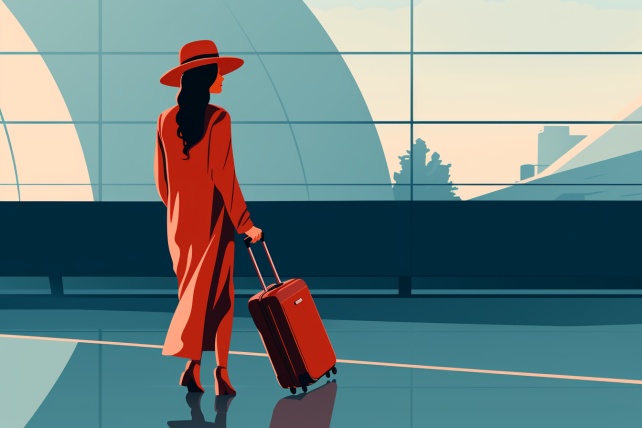Should I wait for a fare sale or buy my airline ticket now? That’s the question I’m most frequently asked as a consumer advocate. And it’s most often asked now, just as readers are starting to think about their summer vacations.
“How far out would you advise purchasing tickets to London from Baltimore-Washington?” wonders Anna Fansler.
“Should we book soon, or can we wait for possibly cheaper deals that might come through?” asks Laura Schwingel.
I won’t keep you in suspense, ladies: Book your tickets soon.
“Better lock in your fare,” says Paul Ruden, the senior vice president for legal and industry affairs for the American Society of Travel Agents. “A month from now, it’s going to cost more. There isn’t anything to drive fares down at this point.”
What would make ticket prices fall? Easing tensions in the Middle East, which would lower oil prices and put downward pressure on fares. Airlines could also add new flights, which would add capacity, pushing prices lower. Neither is likely to happen, says Ruden.
“Capacity is really tight and oil prices are rising,” he says. “To me, that suggests fares are going to go up in the foreseeable future.”
The potential impact of industry proposals
Bob Harrell, a respected airfare analyst, agrees. “I think fares are going to go up,” he says. But that’s not to say that air travelers who aren’t risk-averse won’t find a few rewards by waiting. While the average leisure fare is up roughly 20 percent from a year ago, there’s no guarantee that the typical summer fare sales will be canceled.
“You can do okay by waiting 60 days prior to your departure to buy,” says Harrell. “It doesn’t matter what’s happening in the Middle East. There are always empty seats. And there are always sales.”
The question is, how lucky do you feel? Fares are climbing quickly, say experts. “Airlines are increasing their fares at the fastest pace in two years, driven by high fuel prices and enticed by strong consumer demand,” says Krista Pappas, a director for Bing Travel.
One airline even wants to build some of these fluctuations into the price of air transportation. Its proposal, if approved by the Transportation Department, could change the way airline tickets are priced.
Allegiant Air’s unconventional proposal
Allegiant Air, the Las Vegas-based no-frills airline, outlined its plans to let passengers play the oil futures market in a recent letter to the DOT.
“When making a purchase, consumers would be able to choose between a traditional locked in fare that would not fluctuate, and a lower fare that could change before the date of travel,” wrote company chairman Maurice J. Gallagher Jr. “That lower fare could be reduced further or could increase, up to a set maximum that would be clearly disclosed, depending on changes in fuel price between the booking and travel dates.”
Here’s how it might work: The next time you go airfare shopping, you might see a “locked in” fare for $99 and a flexible fare for $69. But the flexible fare would be tied to the price of oil. If jet fuel prices rise before your flight, you could pay the difference — maybe an extra $39. Or you could get a refund, theoretically, if fuel prices fall.
Consumer advocates don’t like the idea. “What Allegiant Air is proposing is simply a mechanism for off-loading the normal airline business risk of fuel price increases onto the consumer, where it does not belong,” says Burton Rubin, director of a new passenger- rights organization called Airline Passengers.
A practical booking approach
But airline experts believe that it’s only a matter of time before other airlines try to “unbundle” the cost of fuel from their tickets. In fact, European carriers already charge hefty fuel surcharges that can rise and fall with the price of energy. This just represents the next logical step, at least from the airlines’ perspective. (Related: Holiday airfare strategies: Does waiting longer ever work?)
What to do? I’m not opposed to using sites such as Bing Travel, Farecompare.com or Yapta, all of which help you find the best airfare-buying opportunities. But I don’t recommend obsessing over fares, because it’s usually a zero-sum game. (Here’s what you need to know if your flight gets canceled or delayed.)
Unless you have nothing better to do than to spend hours at your computer searching for the lowest possible airfare — and who does these days? — then what’s the point of doing something that will save you a few bucks at best? It’s far better to spend your valuable time planning the parts of your vacation that matter, like the activities and the meals.
I have a standard answer to the “book now or later” question, and even amid soaring oil prices and scarce airline capacity, it hasn’t changed: If you see a fare you can afford, book it. And don’t look back.




